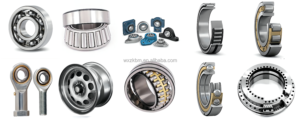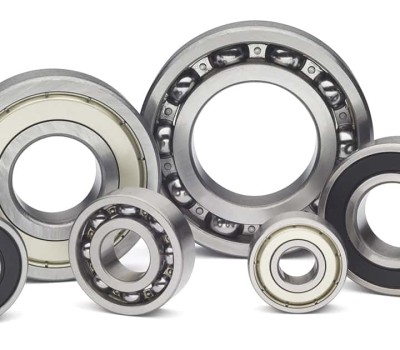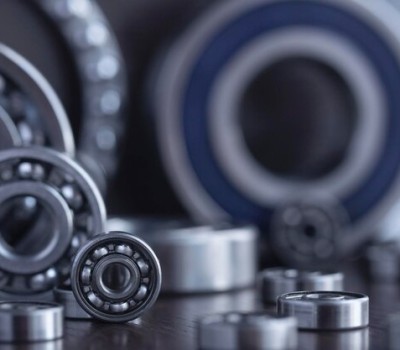The Advantages of Deep Groove Ball Bearings in the Automotive Industry
The automotive industry is known for its rigorous demands on machinery and components. Reliability, efficiency, and durability are essential factors in designing components that perform at high levels, often under extreme conditions. One such critical component that plays a vital role in ensuring smooth and efficient operation is the bearing. Among the different types of bearings used in automotive applications, deep groove ball bearings stand out due to their versatility, cost-effectiveness, and high performance. These bearings are extensively utilized across various parts of vehicles, from engines to wheel hubs, providing numerous benefits for manufacturers and consumers alike. In this blog, we will delve into the advantages of deep groove ball bearings in the automotive industry.
What Are Deep Groove Ball Bearings?
Before exploring their specific advantages, it’s important to understand what deep groove ball bearings are. These bearings consist of an inner and outer ring, between which a series of steel balls roll, enabling smooth movement. Their design is relatively simple but highly effective, allowing them to support both radial and axial loads. The term “deep groove” refers to the raceway (the path the balls follow), which is designed with a deeper curvature than other types of ball bearings. This design allows deep groove ball bearings to handle higher loads and speeds, making them well-suited for automotive applications.
1. High Load-Capacity and Versatility
In automotive applications, bearings are subjected to a variety of loads, including radial (from the weight of the vehicle and forces during motion) and axial (due to thrust forces from engine operation, steering, and braking). Deep groove ball bearings are highly versatile because they can manage both types of loads simultaneously. This versatility is essential in the automotive sector, where different components require different types of load-bearing capabilities.
Deep groove ball bearings can be found in many key automotive systems, such as in the wheel hubs, gearboxes, electric motors, and even in steering mechanisms. For instance, wheel hub assemblies rely on these bearings to handle the radial loads caused by the vehicle’s weight and the axial loads from braking forces. The ability of deep groove ball bearings to manage these loads efficiently without compromising on performance makes them indispensable in the design of many critical automotive systems.
2. Durability and Longevity
The automotive industry operates in a challenging environment. Vehicles are exposed to high levels of vibration, heat, moisture, and contaminants, all of which can contribute to the wear and tear of components. Deep groove ball bearings are designed to withstand these extreme conditions, offering a high degree of durability. Their robust design helps them endure the stress placed on them by high-speed rotations, heavy loads, and varying temperatures.
In applications like engine components and wheel hubs, deep groove ball bearings are required to function reliably over extended periods. The ability of these bearings to operate under such demanding conditions with minimal wear and tear results in a longer lifespan for automotive parts. This durability also translates into reduced maintenance costs, as bearings in key areas like engines, transmissions, and wheel hubs do not need to be replaced as frequently. For automotive manufacturers, this means reduced downtime for repairs, lower maintenance costs for consumers, and improved vehicle reliability.
3. Reduced Friction and Improved Fuel Efficiency
One of the most significant advantages of deep groove ball bearings in the automotive industry is their ability to minimize friction. The smooth rolling of the steel balls within the bearing’s raceways reduces the resistance between moving parts, allowing components to function more efficiently. This reduction in friction plays a crucial role in improving overall vehicle performance, particularly in terms of fuel efficiency.
By lowering friction, deep groove ball bearings help reduce the energy lost to heat, enabling the vehicle’s engine and other moving parts to work more efficiently. This results in better fuel consumption, lower emissions, and an overall reduction in operating costs for the vehicle owner. With rising fuel prices and increased environmental awareness, automotive manufacturers are under constant pressure to improve the fuel efficiency of their vehicles. The use of deep groove ball bearings is a key part of meeting these demands, as they contribute to improved overall vehicle performance.
4. Noise and Vibration Reduction
Noise and vibration are significant concerns in automotive design. High levels of vibration can impact both the comfort of the passengers and the durability of the vehicle. Deep groove ball bearings, due to their smooth operation and low friction, help to minimize vibration and reduce noise in critical components such as wheel hubs, electric motors, and gearboxes.
In wheel hubs, for example, deep groove ball bearings reduce the noise generated during vehicle movement by ensuring that the wheels rotate smoothly. Similarly, in electric motors and alternators, where smooth operation is crucial, these bearings help in maintaining quiet operation. Reducing noise and vibration not only enhances the driving experience but also prolongs the lifespan of various components, as vibrations can lead to premature wear if left unaddressed.
5. Compact and Lightweight Design
The automotive industry is constantly striving to make vehicles lighter and more fuel-efficient. One way to achieve this is by using components that are both lightweight and compact. Deep groove ball bearings are a perfect fit in this regard. They are relatively small in size, yet they provide high load-carrying capacity and can be used in a variety of configurations. This allows automotive designers to reduce the overall weight of the vehicle without sacrificing the performance of critical components.
For example, deep groove ball bearings are used in electric motors and other moving parts where reducing weight is crucial for improving energy efficiency. The compact design of these bearings also allows for the optimization of space within vehicle systems, such as in gearboxes or drive shafts, making them ideal for modern automotive engineering.
6. Cost-Effective Solution
In the automotive industry, cost is always a significant consideration, particularly when it comes to mass production. Deep groove ball bearings offer an excellent balance of performance and affordability. Their simple design means that they can be manufactured at a relatively low cost compared to other specialized bearings, making them a cost-effective solution for automotive applications.
Furthermore, the extended lifespan and reliability of these bearings translate into lower overall maintenance costs for consumers. Fewer replacements are required, and vehicle performance remains consistent over time, leading to higher customer satisfaction and reduced warranty claims for manufacturers.
7. Easy to Maintain and Replace
Deep groove ball bearings are relatively easy to maintain and replace compared to other types of bearings. The straightforward design and availability of various sizes make them ideal for mass-production vehicles. Maintenance tasks, such as lubrication and cleaning, are simple to perform, which is particularly valuable in reducing repair downtime.
In automotive repair and maintenance, ease of bearing replacement is an important factor. When a deep groove ball bearing reaches the end of its life, it is relatively easy to remove and replace, ensuring minimal downtime for repairs. This convenience makes them a favored option for both manufacturers and service technicians.
Conclusion
Deep groove ball bearings offer numerous advantages in the automotive industry, from their high load capacity and durability to their ability to improve fuel efficiency, reduce noise and vibration, and offer a compact design. These bearings are indispensable components in a wide range of automotive systems, ensuring reliable performance under demanding conditions. Their cost-effectiveness and ease of maintenance further cement their place as a crucial part of modern automotive engineering.
As the automotive industry continues to evolve, with an increasing focus on efficiency, sustainability, and performance, the role of deep groove ball bearings will only become more significant. From electric vehicles to traditional internal combustion engines, these bearings will continue to contribute to the smooth, efficient, and reliable operation of vehicles, making them a fundamental part of the automotive industry’s future.




